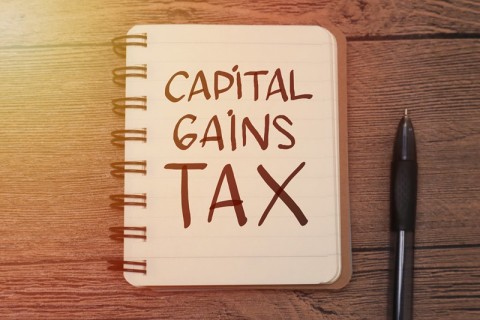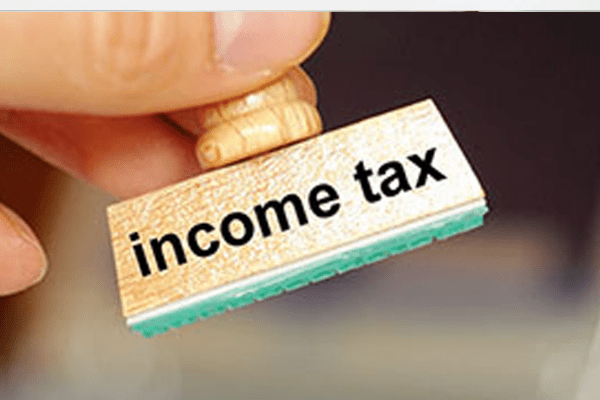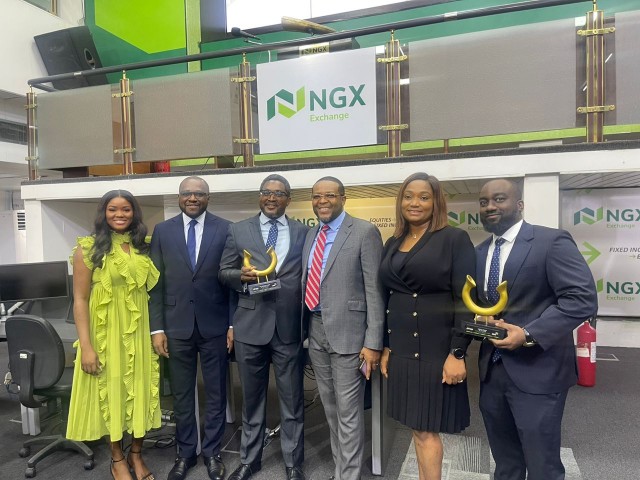In the twilight of his administration on May 28, 2023, Nigeria’s immediate past President, Muhammadu Buhari, signed the Finance Act 2023 (the “Act”) into law. The Act takes retrospective effect from May 1, 2023, or such other date as may be indicated by an Act of the National Assembly, or an order or assent made by the President.
Essentially, the Act introduces key amendments to some of the existing federal tax statutes and specific legislations that are crucial to effective public financial management. Since 2019, a new version of the Finance Act has been enacted annually and this has become a constant fiscal policy instrument for the Federal Government. The current amendments are designed to advance key macroeconomic objectives of the Federal Government in the 2023 fiscal year through improved taxation strategies.
We have highlighted below the key changes that the Act has brought to the Nigerian tax regime, which may be of concern to individual and corporate taxpayers, as well as key industry players in various sectors of the Nigerian economy.
CAPITAL GAINS TAX
- Digital Assets are now Chargeable Assets
The Capital Gains Tax Act (“CGTA”) has been amended to include “Digital assets” as a form of property upon which capital gains tax is payable. Thus, recognized and approved digital assets in Nigeria have become chargeable assets. In essence, gains derived from the disposal of digital assets (whether situated in Nigeria or elsewhere) are now chargeable gains.
“Digital assets” subject to capital gains tax under the Act, though not statutorily defined, may ordinarily include cryptocurrencies, non-fungible tokens, and other forms of digital assets which are “a digital representation of value or contractual rights which can be used for payment or investment purposes”.[1] The Digital Assets Rules[2], issued by the Securities and Exchange Commission ("SEC”) in May 2022, provides for digital assets and virtual assets approved for investments in the Nigerian capital market. The SEC rules define ‘digital asset’ as a digital token that represents assets such as a debt or equity claim on the issuer. It also defines ‘virtual asset’ as a digital representation of value that can be transferred, digitally traded, and can be used for payment or investment purposes, excluding digital representation of fiat currencies, securities, or other financial assets. This gives an idea of the forms of digital assets that are likely to be covered by the new amendment to the CGTA.

Given that digital assets have become a high-yielding (albeit volatile) intangible financial instrument, there has been recommendation by legal, tax and economic experts that they should be taxed. Their classification as taxable property under the CGTA seems to have validated the recommendation. Furthermore, the National Blockchain Policy for Nigeria, released in May 2023, provides an implementation framework for onboarding a blockchain-based digital economy in Nigeria, with a presidential mandate directing all regulatory agencies to develop regulatory instruments for the deployment of blockchain technology across various sectors of the economy.
With these developments, certain digital assets, such as cryptocurrencies, which have been the subject of controversial regulatory bans in Nigeria, are expected to come under sectoral market regulations and the remit of relevant tax authorities. This will lead to a further deepening of the market and more tax revenue for the government.
- Extended Loss Relief Period
Prior to the enactment of the Act, losses which accrued to a person on disposal of chargeable assets were not deductible from gains accruing to any person on a disposal of such asset. However, following the passing of the Act, the amount of any loss which accrues to a person on the disposal of any asset shall now be deductible from gains accruing to the person disposing of that asset, provided that such loss shall only be deductible against the same type of asset.[3]
The Act has also introduced an interesting provision to the CGTA, which allows taxpayers to carry forward losses for a maximum period of five (5) years immediately succeeding the year in which the loss was incurred, where the aggregate capital losses exceed the aggregate capital profit.
- Roll-Over Relief
The Act has introduced a regime of roll-over relief for stocks and shares, which was previously not available under the CGTA. This is because prior to the commencement of the Act, roll-over reliefs were only applicable in instances of sale of buildings, plants and machinery, ships, aircraft and good-will. However, the insertion of the expression, “Stock and Shares – Class 5”, in the appropriate CGTA provisions, signifies the inclusion of stock and shares as the new class that qualifies for roll-over relief, provided that for the purposes of the application of roll-over relief for shares pursuant to sections 30 and 31 of the CGTA, the proceeds from qualifying disposals must be reinvested within the same year of assessment in the acquisition of eligible shares in the same or other Nigerian companies.
COMPANIES INCOME TAX
- Income Tax Returns by Non-Resident Shipping and Air Transport Companies
The Act has amended the Companies Income Tax Act (“CITA”) to introduce new compliance obligations for shipping and air transport operators in Nigeria. These companies are now required to file income tax returns accompanied by certified copies of their detailed gross revenue statement, covering their Nigerian operations, clearly stating the sum earned during the relevant period, in lieu of audited financial statements. This is a welcome development as it will go a long way to ease the tax compliance procedure for non-resident companies operating air transport and shipping business within Nigeria.
- Evidence of Tax Payment/Tax Clearance Certificates required for Shipping and Air Transport Licenses and Permits
The Act has introduced a new provision in the CITA requiring regulatory agencies in the shipping and air transport industries, to mandate all companies seeking licensing and permits from such regulators to present evidence of income tax filings for the preceding year, and Tax Clearance Certificates (TCCs) for three (3) preceding tax years. This amendment is expected to increase the general tax compliance of companies within the industry and admit more of such companies into the tax net with a view to increasing government revenue going forward.
- Withdrawal of Investment Allowance
Unfortunately, the Act has introduced a withdrawal of certain tax incentives which may not be good news to concerned taxpayers. Notably, sections 32 and 34 of the CITA, which previously provided for 10% investment allowance have been deleted by the Act. Hence, affected companies may no longer claim the erstwhile applicable additional investment allowance of 10% on qualifying expenditure incurred on plants and equipment. However, assets acquired before the effective date of the Act, that is, assets acquired before May 1, 2023, shall not be affected and shall continue to enjoy the benefit of the allowance.
- No more Exemption for Income in Convertible Currencies.
Section 37 of the CITA, which previously provided for exemption of incomes in convertible currencies, has now been deleted by the Act. However, a company that has set aside reserved funds shall continue to enjoy the exemption until the reserved funds are fully utilized or until the five (5)-year limit effluxes, whichever occurs first.
CUSTOMS AND EXCISE DUTIES
- New Levy Imposed on Imported Goods
The Act has amended the Customs, Excise, Tariff Etc. (Consolidation) Act (“CETA”) to impose an import levy of 0.5% on all eligible goods imported into Nigeria from outside Africa. It is expected that proceeds from this levy shall be utilized for the purpose of financing capital contributions, subscriptions, and other financial obligations designated for financial and multilateral institutions in Nigeria.

- Excise Duty imposed on Telecoms and Other Services
The Act further amends the CETA to provide that all services, including telecommunication services, are liable to excise duties at rates prescribed by the President. Hence, excise duty may now be payable on all services at rates determined by the President.
- Power of the Minister of Finance to Oversee Tariff Review
Provisions have also been introduced under the Act to clarify the role of the Minister of Finance to review customs and excise tariffs, through the Tariff Review Board set up by the Minister in exercise of powers conferred under the CETA. This clarification was previously not available under the CETA. The clarification now provided under the Act is expected to facilitate seamless administration of the CETA.
PERSONAL INCOME TAX
- Tax Relief on Personal Insurance Premium & Deferred Annuity Payment
The Act has amended the Personal Income Tax Act (“PITA”) to restore tax relief on amounts paid as premium on deferred annuity, a tax incentive that was previously withdrawn in 2021. With the new amendment, there is now an allowance for deduction of personal or spouse’s life insurance premiums, or contractual deferred annuity payments, under the PITA. However, any portion of a deferred annuity payment withdrawn within five (5) years of paying the premium will be subject to tax at the point of the withdrawal. Individuals will have to seek professional advice from their tax advisers to ensure that their personal and spouse’s life insurance premiums, and contractual deferred annuity payments, are structured in a tax efficient manner in conformity with the new applicable tax regime.
PETROLEUM PROFITS TAX
- Recognition of the Upstream Petroleum Regulator
The Petroleum Profits Tax Act (“PPTA”) has been amended to recognise the Nigerian Upstream Petroleum Regulatory Commission (“NUPRC”), established under the Petroleum Industry Act, 2021 (“PIA”), as the regulator of the Nigerian upstream petroleum sector.
- Rents incurred for Disturbances on Land and Buildings no longer Allowable Deductions
- Decommissioning and Abandonment Costs now Deductible Expenses
The PPTA has further been amended to provide that, rents incurred by a petroleum company for a period in respect of land and buildings occupied under Oil Prospecting Licenses and Oil Mining Leases for disturbance of surface rights or for any other disturbance, are no longer considered deductible amounts for petroleum profits tax purposes. Instead, the PPTA now provides that any amount contributed to a fund, scheme or arrangement approved by the NUPRC for the purpose of Decommissioning and Abandonment (“D&A”), may be deducted for petroleum profits tax assessment purposes, so long as same can be proved by the statement of account of the D&A fund, and that where there is surplus or residue of the fund after D&A of the field, such funds shall be subject to tax.

- Alignment of PPTA with Petroleum Industry Act on Determination of Chargeable Oil
Section 23 of the PPTA has been amended to align with the provisions of section 268 of the Petroleum Industry Act of 2021. The foregoing essentially provides that the basis for ascertaining the total value of chargeable oil for a period, is the number of barrels of crude oil determined at the measurement point multiplied by the fiscal oil price per barrel. It is also provided that, where there is no fiscal price for a crude stream the following may occur: (i) the NUPRC may establish a fiscal oil price of Nigerian crude oil streams of comparable quantity and specific gravity; or (ii) where no Nigerian crude oil streams of comparable quality and specific gravity are available, a fair and reasonable relationship to the official selling prices at main international trading centres for crude oil of comparable quality and gravity may be adopted.
- Reviewed Penalties for Infringements
Furthermore, in the light of current economic realities and the value of the Nigerian currency today, the Act has amended the penalty provisions of the PPTA to bring them into conformity with the economic realities of the country. In this regard, applicable fines and penalties for breach have been increased to improve taxpayers’ compliance.
The penalty stipulated in section 51 of the PPTA for general failure to comply with the provisions of the PPTA has been significantly increased from N10,000 (Ten Thousand Naira) to N10,000,000 (Ten Million Naira). Where such default continues after a period stipulated by the relevant laws, as opposed to the old fee of N2,000 (Two Thousand Naira), a further administrative daily default fee of N2,000,000 (Two Million Naira) is now applicable. Additionally, where a person is found guilty of an offence under the PPTA or regulations made thereunder, for which no specific penalty is provided, he shall upon conviction, be liable to a fine of N20,000,000 (Twenty Million Naira) or such other sum as may be prescribed by the Minister of Finance, or to imprisonment for six (6) months or both such fine and imprisonment.
Regarding persons who, without reasonable excuse, make incorrect accounts, schedules, statements etc., or give any false or misleading information in relation to any matter or thing affecting their liability to tax, Section 52 of the PPTA now provides that such persons are liable to an administrative penalty of the higher of the sum of N15,000,000 (Fifteen Million Naira) or 1% of the amount of tax which has been undercharged in consequence of such incorrect account, schedule, statement or information; or to imprisonment for a period of six (6) months or to both such fine and imprisonment. The former applicable penalty was a fine of a meagre sum of N1,000.00 (One Thousand Naira) and double the amount of tax which has been undercharged under the PPTA or imprisonment for a period of six (6) months.
ELECTRONIC TRANSFER LEVY

- New Sharing Formula for Electronic Transfer Levy
The Stamp Duties Act (“SDA”) has been amended to alter the sharing formula for Electronic Transfer Levy. The Act has now introduced Local Governments as participants in the allocation of revenues which accrue from the collection of the Electronic Money Transfer Levy imposed under the SDA. The former revenue split between the Federal and State Governments was 15% and 85% respectively. The new revenue split amongst the Federal, States, and Local Governments is 15%, 50%, and 35% respectively. This is a welcome development as the new sharing formula will make more revenue available to the Local Governments which is expected to facilitate increased grassroots development.
VALUE ADDED TAX
- Power of FIRS to Disregard Artificial/Fictitious Transactions
The Value Added Tax Act has been amended, to introduce general anti-avoidance provisions regarding dispositions/transactions which may be artificial or fictitious aimed at reducing the amount of tax payable by a taxable person. In this regard, the Federal Inland Revenue Service (“FIRS”) may now disregard any such dispositions/transactions and make new adjustments to counteract such reductions. It is noteworthy that the definition of disposition includes transactions between related entities, presupposing that this new provision directly relates to transfer pricing and contemplates that related parties must transact at arm’s length for Value Added Tax (“VAT”) purposes.
- New Timeline for VAT Remittance
The timeline for the remittance of VAT by persons so appointed by the FIRS has been brought forward from the 21st day of the following month to the 14th day of the following month.
- New Requirements for Non-Resident Digital Supplier
The Act also requires importers of taxable goods and services purchased electronically from a non-resident supplier to provide proof of the non-resident supplier’s registration, amongst other documents, to ensure that the goods are not subject to further taxation by the Nigeria Customs Service. This is a welcome development designed to eliminate or prevent double taxation.
- New Definition of ‘Building’ for VAT Purposes
The Act has amended the Value Added Tax Act to introduce a new definition of “building” for VAT purposes, which excludes any fixtures or structures that can be easily removed from land such as radio and television masts, transmission lines, cell towers, mobile homes, caravans, and trailers. The implication of this provision is that the statutory VAT exemption on buildings will not apply to the supply of such items.
TERTIARY EDUCATION TAX

- Increase in Tertiary Education Tax Rate
In addition to other taxes payable, companies in Nigeria are required to pay a tertiary education tax on their assessable profits for the maintenance of higher educational institutions in Nigeria. The Act has amended the Tertiary Education Trust Fund (Establishment Etc.) Act to increase the rate of tertiary education tax from 2.5% to 3%. It is notable that the preceding Finance Act 2021 only recently increased the rate from 2% to 2.5%. This new increase is very significant because it effectively increases the annual tax cost of qualifying companies in Nigeria. This is especially crucial on the heels of the rising inflation in the country and the ever-increasing cost of doing business in Nigeria.
MANAGEMENT OF PUBLIC FINANCE
- Budgetary Provision, Administrative Approvals and Procurement Plans to precede Contract Awards
The Act has amended the Public Procurement Act ("PPA”) and the Corrupt Practices and Other Related Offences Act (“CPOROA”) to engender fiscal responsibility and discourage corrupt practice by public officers.
Specifically, the PPA has been amended to require the obtaining of relevant authorizations and an approved procurement plan which complies with the prescribed threshold for the formalization of any procurement proceedings by relevant procuring entities. This essentially means that procurement plans must be approved and supported by prior budgetary appropriation before contracts are awarded, and that procurement plans shall conform to the appropriate guidelines issued by the Minister of Finance from time to time. By the same token, the CPOROA has also been amended to provide that any public officer who (in the discharge of official duties) awards or signs any contracts without budget provision, administrative approvals, and procurement plan, shall be guilty of an offence and on conviction shall be liable to three (3) years imprisonment or a fine of N10,000,000 (Ten Million Naira).
This is a welcome development designed to ensure that the necessary approvals are obtained before public officers award any contracts on behalf of the government. It is expected that this new provision will go a long way towards curbing incidences of corruption in the public procurement system and thereby improve the fiscal health of the country. The amendments are also aimed at addressing the bureaucratic impediments in the existing procurement laws by hastening procurement processes and ushering in reform in public finance management.
IMPROVED CORPORATE GOVERNANCE AT THE MINISTRY OF FINANCE
- Governing Council and Powers of the Ministry of Finance Incorporated
The Act, through amendment of the Ministry of Finance (Incorporated) Act (“MOFIA”), has now empowered the President to, on the recommendation of the Minister of Finance, appoint a governing council, an executive board, and a management team as may be required for the Ministry of Finance Incorporated (the “Corporation”). Such appointed persons are to be responsible for the proper governance, administration, and the daily management of the Corporation.
The Act makes further amendments to the MOFIA, stipulating the powers of the Corporation to develop, adopt, appropriate, amend, revoke or supplement appropriate regulations, codes, internal guidelines, and procedures consistent with the MOFIA, in furtherance of the Ministry’s objects, which must be in accordance with its pre-allocated functions.
The new amendments also make prior consultation with the Minister of Finance compulsory, before adoption of any regulations, internal guidelines, procedures, and subsequent material changes made by the Corporation.
These provisions are a welcome development as they guarantee a legislation-backed culture of good corporate governance for the Corporation in the exercise of its statutory functions.
Taxpayers are expected to consult their tax advisors for professional advice before taking any major financial or commercial decision. This will ensure that their business operations are run in the most tax efficient and compliant manner allowed under the new tax regime introduced by the Act, to prevent unwarranted run-ins with either the law or the appropriate regulatory authorities.
DISCLAIMER: This publication is only intended to provide general information on the subject matter and does not by itself create a client/attorney relationship between readers and our Law Firm or serve as legal advice. We are available to provide specific advice on the subject of this newsletter, as may be required.
[1] Review of the FSB High-level Recommendations of the Regulation, Supervision and Oversight of “Global Stablecoin” Arrangements: Consultative Report
[2] SEC: Rules on Issuance, Offering Platforms and Custody of Digital Assets, May 2022 – https://sec.gov.ng/rules-on-issuance-offering-and-custody-of-digital-assets_sec-nigeria-11-may-2022/
[3] S. 5 CGTA (as amended by the Act).




